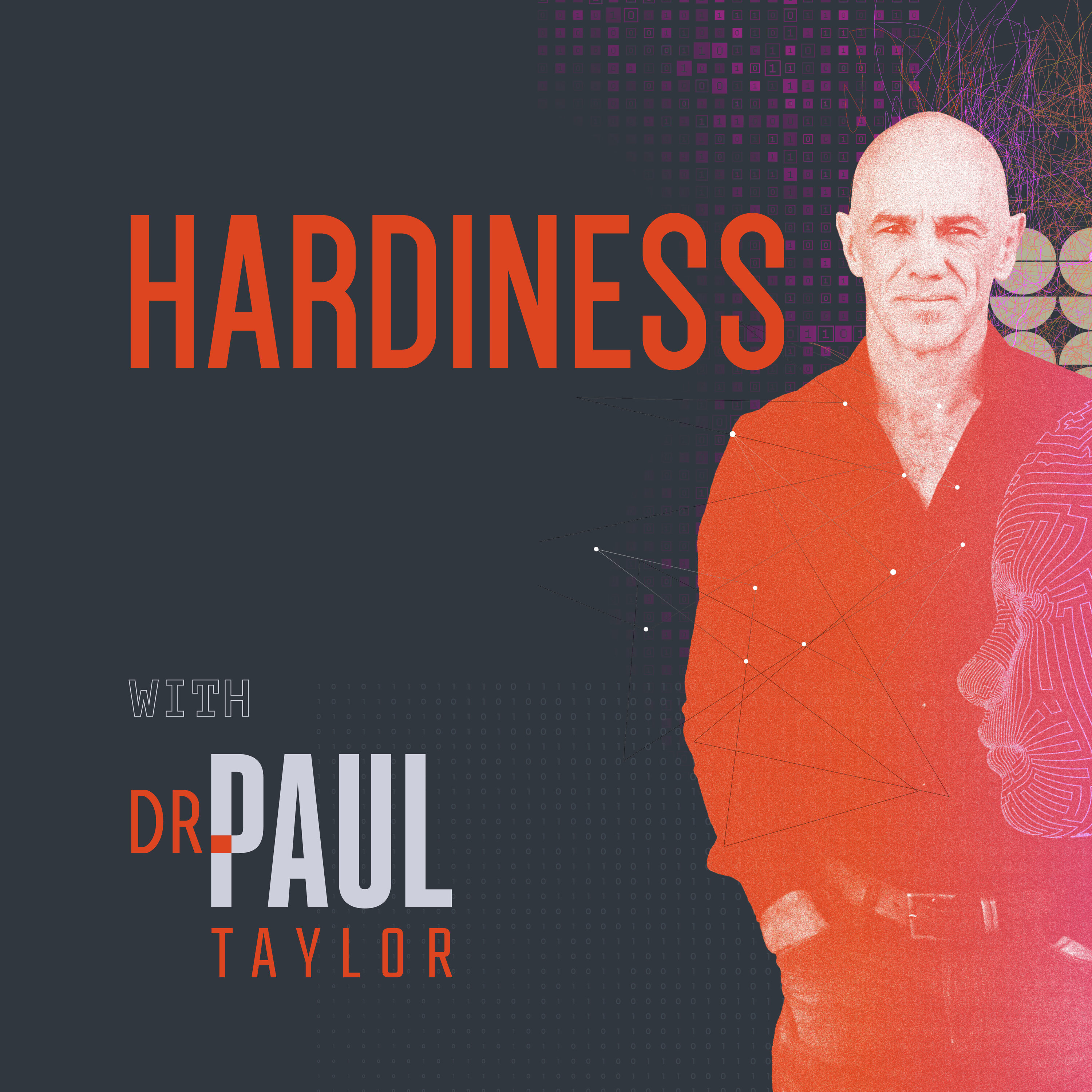

Hardiness with Dr Paul Taylor
Paul Taylor
Host Dr Paul Taylor, a Psychophysiologist, Neuroscientist, Exercise Scientist, and Nutritionist interviews experts from around the world on cutting edge research and practices related to improving hardiness in your mind, body and brain to become your best self.
Episodes
Mentioned books

Feb 3, 2026 • 9min
A very cool, simple hack to greatly improve your strength training - Wisdom Wednesdays
They explore how heat, not just muscle failure, drives fatigue during strength workouts. A Stanford-backed cooling trick using palm contact is explained. Research results show big gains in reps, pull-ups, training volume and 1RM. A simple DIY frozen-bottle method for palm cooling is demonstrated.

Feb 1, 2026 • 7min
MOVE: A Simple Process for Difficult Emotions With Carly Taylor
A practical acronym called MOVE is introduced as a step-by-step way to handle overwhelming feelings. The conversation explores how reasoning can amplify emotions and why noticing thoughts helps. Listeners hear techniques for making space for feelings with self-compassion. The focus shifts to values-driven actions and simple ways to keep living while carrying difficult emotions.

Jan 30, 2026 • 59min
The Deeply Entrenched Flaws of The Mental Health Industry, with professor John Read
Professor John Read, clinical psychologist and researcher challenging mainstream psychiatry, discusses why many psychiatric labels lack scientific basis. He explores overdiagnosis, pharma influence, harms of antidepressants and ECT, and the neglect of trauma. He calls for trauma-informed care, individual formulations, social supports, and safer tapering approaches.

Jan 25, 2026 • 7min
Feeling Overwhelmed? An Effective Way Forward with Carly Taylor
Practical tips for handling overwhelm through simple shifts in language and thought. Learn a quick brain dump and two-column prioritization to clear mental clutter. Try 25-minute focus blocks with short movement snacks to restore energy. Emphasis on small actions to build momentum and work alongside emotions rather than fighting them.

Jan 23, 2026 • 52min
Revolutionising Heart Health With Dr John Osborne
Dr. John Osborne, a leading preventative cardiologist, shares his insights on revolutionizing heart health. He dives into the dangers of silent plaque and the limitations of traditional tests like stress tests. Dr. Osborne explains the power of advanced cardiac CT and AI in early detection, stressing that proactive measures can literally save lives. He also discusses the importance of specific cholesterol tests and how understanding plaque types can guide effective treatments. This conversation is a must-listen for anyone interested in heart health!

Jan 20, 2026 • 9min
Stunning new research on the impact of exercise intensity - Wisdom Wednesdays
Dive into the transformative powers of exercise intensity and its impact on muscle adaptations. Discover how high-intensity training can dramatically increase mitochondrial density, while longer, moderate efforts boost capillary growth. Learn about the versatile roles of mitochondria beyond energy production, including hormonal regulation and detoxification. Hear how individuals of all ages can benefit from tailored training approaches. Ultimately, consistency and a focus on workout intensity emerge as key for optimizing health.

Jan 18, 2026 • 5min
Can You Accept Yourself and Make Room for Change? with Carly Taylor
Explore the delicate balance between self-acceptance and the drive for change. Carly Taylor delves into how acceptance isn’t simply giving up, but a step toward growth. Learn about the power of self-compassion in overcoming shame and fostering meaningful transformation. Discover the dangers of becoming too attached to a fixed identity and how acceptance can actually guide your journey forward. Ultimately, values and purpose are revealed as the true motivators for personal evolution.

10 snips
Jan 16, 2026 • 58min
A deep dive into Psychological and Physiological Hardiness , with Paul and Carly Taylor
In this insightful conversation, Paul Taylor—a psychophysiologist and author—discusses the fascinating concept of hardiness compared to resilience. He shares his personal history, including his experience with open heart surgery and how he reframed it as a challenge. Paul emphasizes the four C's: control, challenge, commitment, and connection, and presents evidence that hardiness can be developed. He also outlines practical steps to cultivate a hardiness mindset in both adults and children, while highlighting the role of connection in stress and recovery.

Jan 13, 2026 • 13min
Final proof that dietary advice for metabolic health needs to change: Wisdom Wednesdays
Dive into the debate between low-carb and low-fat diets, particularly for managing type 2 diabetes. Discover compelling findings from systematic reviews that show low-carb diets lead to better metabolic outcomes. Learn how low-carb options improve important health markers like HbA1c and triglycerides. Dr. Taylor also discusses why traditional guidelines are lagging behind the evidence. Get practical advice on substituting processed carbs with whole foods to enhance blood sugar control and overall health.

Jan 11, 2026 • 8min
Living With Anxiety: An Attentional Practice with Carly Taylor
Explore the fresh perspective on anxiety as a natural response to life's uncertainties. Carly discusses how it signals what truly matters, inspired by Rollo May's insights. She distinguishes between everyday anxiety and its more intense forms. Learn how attentional control can break the cycle of anxious thoughts, with practical exercises to shift focus away from internal worries. Carly emphasizes building these skills outside of crisis moments to better cope when anxiety strikes.


